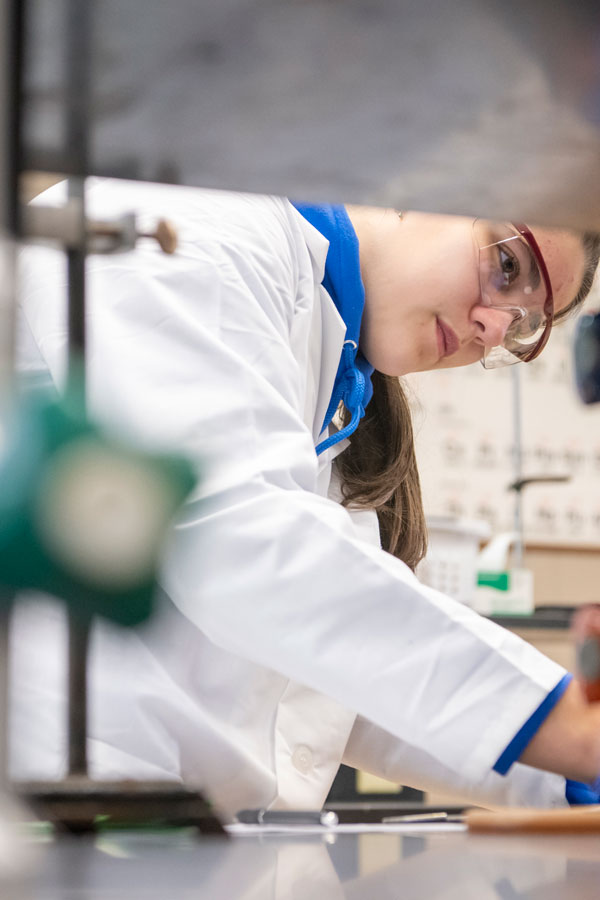
Chemistry - BS
If you want to discover what things are made of, become a chemist and find out.
Why study chemistry at Pitt-Bradford?
Because you’ll get personalized attention and support from your chemistry professors (they’re internationally recognized experts) who will guide you every step of the way.
You’ll also have opportunities to get hands-on experience to prepare for your career. Conduct research with your professors. Apply what you learn in well-equipped labs. Serve as a chemistry intern at a local industry. We have strong connections with local industries, so we can help you secure an internship.
What will I learn?
As a chemistry student, you'll work with the latest equipment and software. Equipment like the Fourier Transform-Infrared Spectrometer. It provides a “fingerprint” identification for unknown compounds. You'll get to use Wave Function software for Computational Chemistry that visualizes the structure of complex molecules. You can also write and present research findings at national meetings. Maybe you'll get it published.

What can I do with a degree in chemistry?
With all of that practical experience, you’ll be prepared for a career in many industries, including research, health care and education, or you can go to graduate school. Our graduates have gone to Penn State University, Indiana University and the University of Nebraska.
Job titles:
- Analytical chemist
- Clinical technician/specialist
- EPA inspector
- Food scientist/technologist
- Laboratory research assistant
- Laboratory technician
- Medical technologist
- Polymer chemist
- Quality control technician
- Toxicologist
Employers:
- Research laboratory
- Pharmaceutical industry
- Manufacturing industry
- Government
- Health care industry
- College or university
- Energy industry
- Environmental protection organizations
-
CHEM 0201
Introduction To Analytical ChemistryEvaluation of analytical data, quantitative and qualitative analysis, gravimetric analysis, volumetric analysis, precipitation titration, neutralization titration, oxidation-reduction analysis, potentiometric methods, spectroscopic methods, chromatography, and fundamental methods of analysis used by all chemists in research. -
CHEM 0206
Organic Chemistry 1The chemistry of carbon compounds with emphasis on the methods of preparation and the characteristic properties and reactions of the important classes of organic compounds.
Program-Related News

New fund supports undergraduate research
Pioneering doctor wants to give back to chemistry program.

New partnership announced with Northeast College
Agreement allows Pitt-Bradford students to earn Doctor of Chiropractic in three years.

Graduates head to police academy, graduate school
New grads include first environmental engineering technology graduate.